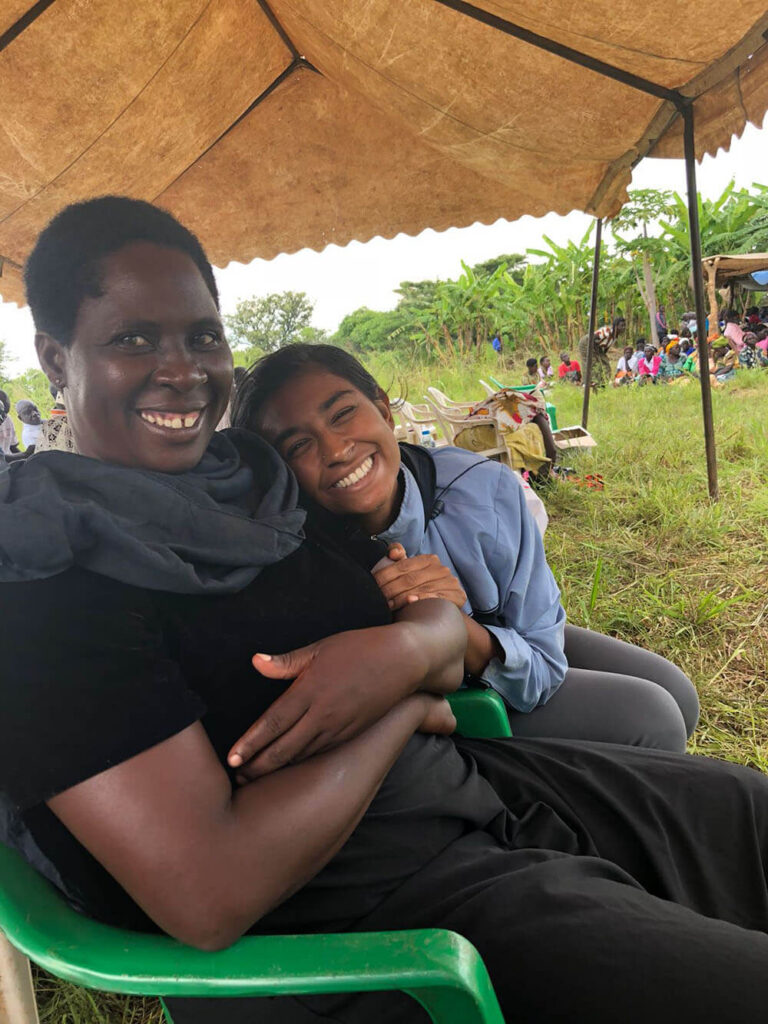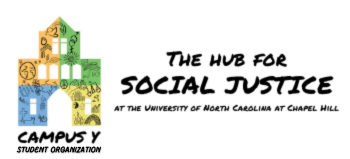The Global Engagement Fellowship (GEF) supports UNC Chapel Hill students conducting international social-justice oriented summer projects. The following blog was written by GEF recipient Thilini Weerakkody.
I can see her crying from across the dry, grassy field; she looks like she is around my age. She is sitting on a wooden bench underneath a makeshift tarp, her body slumped against woman in a bright pink dress. Four brown poles hold up the thin, wavy metal protecting her from the strong sun. Despite the heat, she is bundled in a wooly green and black blanket. Occasionally her head will dip underneath it, hiding from her loss. I do not know her or her connection to the deceased, but looking at her face, scrunched in that painful expression, I feel like I am going to explode.
I should not be at this funeral; I do not even know the man’s name. All I know is that he was a few years older than my father and he died of a stroke. Sitting here, underneath a flowy white tent, watching this girl with her eyes squeezed tight and fingers desperately grasping her blanket, I have never felt more privileged.
 In stroke cases, medical response time is important. My father did not seek care immediately and half his body was paralyzed. However, my Dad had a team of police and an ambulance to save his life the moment he asked for help; most people in Uganda do not have that option. Health centers are few and ambulances are rare—these problems are why I am here. I am working with the NUMEM Center, a grassroots organization that targets (??) barriers to health. During NUMEM community meetings, the people always ask for an ambulance in addition to more health facilities, drugs, etc. Usually, if patients need advanced care, they have to travel one or two hours to reach a hospital. Transportation is expensive, time consuming, and not always available. That is why this man, only a few years older than my father, is dead. Severe medical cases like stroke are usually fatal in Uganda.
In stroke cases, medical response time is important. My father did not seek care immediately and half his body was paralyzed. However, my Dad had a team of police and an ambulance to save his life the moment he asked for help; most people in Uganda do not have that option. Health centers are few and ambulances are rare—these problems are why I am here. I am working with the NUMEM Center, a grassroots organization that targets (??) barriers to health. During NUMEM community meetings, the people always ask for an ambulance in addition to more health facilities, drugs, etc. Usually, if patients need advanced care, they have to travel one or two hours to reach a hospital. Transportation is expensive, time consuming, and not always available. That is why this man, only a few years older than my father, is dead. Severe medical cases like stroke are usually fatal in Uganda.
My privilege snakes through me; it feels like gratitude and anger. I remember the third night after my Dad’s stroke. I dragged my exhausted mother out of the hospital room demanding that she had a night of rest. My dad and I ate some dinner, he picked at his chicken and rice as I inhaled my Chipotle burrito bowl. Then, with blankets wrapped around us and our fingers laced firmly around each other, we watched movies. He fell asleep halfway through the Jungle Book. He looked so small sleeping in his hospital bed, I suddenly felt overwhelmed. I dipped my head underneath my blanket, hiding from the image and finally let myself cry. As I sat there, with my eyes squeezed shut and my fingers desperately grasping his, all I felt was love and thank you, thank you, thank you.
But the tears of the woman across the dry, grass field are heartbreaking, mourning the loss of a loved one. This is not a lonely incident; thousands of people die in Uganda, and around the world, because they do not have access to healthcare. I am not ashamed that my father was afforded all those opportunities, but everyone deserves the same privileges; healthcare is a human right.
I am restlessly shifting in my seat, angry that the universe decided that this crying woman would grieve today. I do not know if I believe in a higher power, but the message I hear from the world is like a scream; thank you is not enough, I am here with all my privilege and experiences to do something.
